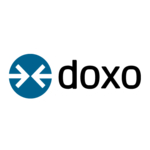More banks nuzzle up to Swift’s nostro blockchain project
Swift has revealed that 22 additional banks have joined its blockchain proof of concept (PoC), designed to validate whether the technology can help banks reconcile their international nostro accounts in real time.
The PoC is part of the Swift gpi (global payments innovation) service, its new standard for cross-border payments. As reported previously, gpi has been gaining traction since its launch earlier this year. It promises to deliver greater speed, transparency and end-to-end tracking in international payments.
Swift calls gpi the biggest overhaul of the cross-border payments system since it was first established in the 1970’s to replace the Telex.
The banks that have recently joined the PoC include: ABN Amro, ABSA, BBVA, China Construction Bank, China Minsheng Banking, Commerzbank, Deutsche Bank, Erste, FirstRand, Intesa Sanpaolo, JP Morgan Chase, Lloyds, Mashreq, Nedbank, Rabobank, Santander, Société Générale, Standard Bank of South Africa, Standard Chartered, Sumitomo Mitsui Banking Corporation (SMBC), UniCredit and Westpac.
These banks will test and validate the PoC’s blockchain application, currently under development by Swift and a group of six founding banks. Working independently of the founding banks, the 22 institutions will act as a validation group to further test the application and evaluate how the technology scales and performs.
Wim Raymaekers, head of banking markets and gpi at Swift, says the new group allows it to “greatly extend the scope of multi-lateral testing of the blockchain application and thus add considerable weight to the findings”.
Unveiled earlier this year, the PoC aims to help banks overcome challenges in monitoring and managing their international nostro accounts, which are “crucial to the facilitation” of cross-border payments. Swift says banks currently cannot monitor their account positions in real time due to lack of intraday reporting coverage.
Moving forward, the PoC blockchain application will undergo testing over the summer months, with the results scheduled to be published in September and presented at Swift’s annual conference – Sibos – in Toronto in October this year.










































